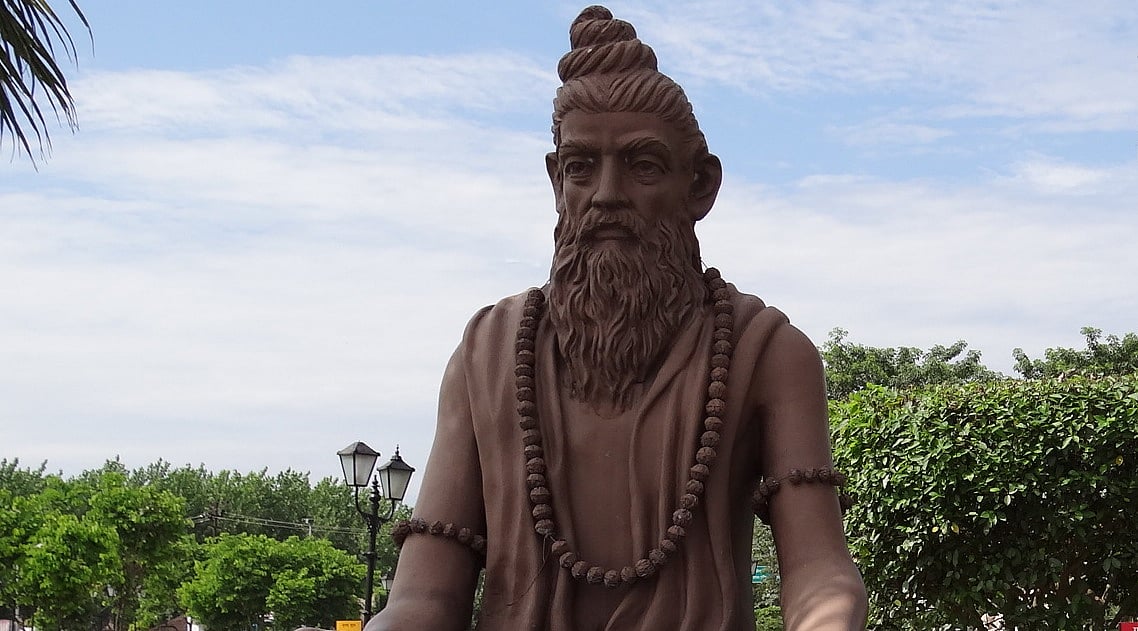
Why It Has Become Harder To Dismiss Ayurgenomics
Findings of a recent, peer-reviewed study brings ayurveda and modern genomics closer than ever.
On 29-Oct-2015 science magazine Nature published a peer-reviewed paper online, titled ‘Genome-wide analysis correlates Ayurveda Prakriti’. The paper, published by Periyasamy Govindaraj et al has opened a significant front in the history of personalized medicine and also in bringing indigenous knowledge systems into the exploratory framework of science.
Personalized medicine is often seen as a future wave in medical sciences with the use of genomic data. With genomic knowledge making the medical system more and more personalized, a generic framework which at the same time takes into consideration individual dynamics can accelerate the evolution of future medicine.
Where does Ayurveda come in?
Traditional Indian medical system provides a broad framework for such a personalized medicine based on the three doshas – Vata, Pitta and Kapa. Ayurvedic system is not an exotic secret Eastern science as has been made out by some of its popularizers in the West. It is a highly localized, de-centralized, cost-effective health solution that even today caters to the medical needs of vast majority of the billion Indians.
Ayurveda same as Greek system of humors? NO.
Often, early Westerners who came in contact with this system have made a comparison of the system with the now outdated Greek system of four humors. However there is an important difference between Indic and the Greek system.
Unlike the Greek system which simply generalizes health as the equilibrium or harmony of the four humors in the body, the Indic system uses the three-doshas to provide a pragmatic medical framework for healing taking into consideration individual differences. The dosha-concept of ‘individual nature’ (Prakriti) is also more dynamic than the Greek concept. According to Dr. Susantha Goonatilake , an eminent techno-sociologist:
According to the Greeks, the imbalance of the humors themselves cause the disease, but in the Indian system the doshas do not directly produce disease, – they have to be disordered through their corresponding causative factors, their respective nidanas. Once the disorder takes place, doshas influence the dhatus. (Toward a Global Science: Mining Civilizational Knowledge, p.86)
The doshas and Prakriti allow a complicated process and a predisposition towards disease that can be triggered by other factors.
Ayurveda and Genomes: Where did it begin?
In 2000, Dr. Bhushan Patwardhan, a scientist with Interdisciplinary School of Health Sciences, University of Pune proposed the original hypothesis that the concept of Prakriti in Ayurveda has strong genetic connotations and suggested a relation between Prakriti variations and genomic variations in individuals. In 2002, he coined the term Ayugenomics and in 2003 a first paper on the concept was published. Since then there have been studies which associate specific genomic variations with the manifest state (phenotype) of a particular Prakriti.
But what about the general genetic variation in the population and Prakriti types? According to Ayurveda each individual has a specific dominant Prakriti and this manifests itself in ‘physical, psychological, physiological and behavioural traits’, and is ‘independent of social, ethnic and geographical variables’.
SNP or Single Nucleotide Polymorphism is the commonest genetic variation that one finds in human beings. Mostly considered as having no effect on the health or life, quite a few SNPs are important in that they create a predisposition towards certain diseases and also have a role in the differential effects drugs have on individuals. This is in a way very similar to Prakriti variations of individuals.
So can the genomic variations in populations correlate with specific Prakriti types? The current study published in Nature takes up this challenge.
What the study has done actually?
For the study 3,416 normal healthy male subjects between 20–30 years of age were recruited. As menstural and pre-menstural phases would have confounding effects during the determination of Prakriti assessment, the females were excluded. ‘The subjects belonged to diverse ethnic and linguistic groups, and inhabited different geographical regions. The health status of every individual was ascertained by modern as well as Ayurvedic methods.’
Then, of the total 3,416 individuals evaluated, 971 having dominance of one Prakriti were taken and through quality control, 262 individuals (94 Vata-dominant, 75 Pitta-dominant and 93 Kapha-dominant) with the highest proportion of one predominant Prakriti were randomly selected. Subjected to further quality control (QC) a final 245 were selected.
Starting with 7,91,186 SNP markers, they zoomed in on 4,05,782 SNPs. ANI-ASI deep ancestry structure of Indian population was also taken into account. The analysis now reveals 52 SNPs as ’genuine characteristics of Prakriti and not derived from ancestry’.
Then the scientists employed these 52 SNPs in Prakritis genetic differentiation and ‘found striking separation of subjects according to their Prakriti. The study has thrown certain interesting observations like the possibility of two alleles of the same locus influencing different Prakritis. Of these 52 SNPs, 28 were genic SNPs. An SNP is considered genic if it falls within a distance of 10 kb of a gene. (1 kb is the length equal to 1000 base pairs in a DNA strand.) One such is PGM1 gene. And it is associated with Vata type SNP markers. The paper says:
In Ayurveda, characteristics of Pitta include digestion, metabolism and energy production. Interestingly, we found PGM1 gene is in the center of many metabolic pathways i.e. glycolysis or gluconeogenesis; pentose phosphate pathway; galactose metabolism; purine metabolism and; starch and sucrose metabolism. Our finding suggests that the function of the gene directly correlates with the role of Pitta in metabolism as described in Ayurvedic literature.
Clearly if this line of research is pursued it will have implications in multiple disciplines ranging from genomic pharmacology to epigenetics with a paradigm shift in ayurgenomics. A rigorous genetic foundation to Prakriti can also make Indic medical systems find their rightful place in a world dominated by Western medicine.
References on next page
Journal reference: Govindaraj, P. et al. Genome-wide analysis correlates Ayurveda Prakriti. Sci. Rep. 5, 15786; doi: 10.1038/srep15786 (2015)